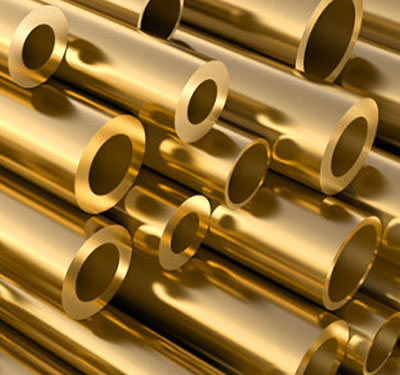Brass pipes have been around for decades and continue to be a reliable option for various industries. Known for their corrosion resistance, strength, and visual appeal, brass pipes serve both functional and aesthetic purposes in plumbing, construction, and industrial applications.
In this article, we’ll explore everything you need to know about brass pipes — from what they are to how they’re used, and why they’re still one of the best piping solutions available today.
What Makes Brass Pipes Special?
Brass is an alloy made primarily from copper and zinc. The combination of these metals creates a material that is both tough and malleable. Brass pipes are known for their ability to withstand high temperatures and pressures without corroding or losing structural integrity.
Whether you’re building a plumbing system or designing an industrial machine, brass pipes deliver unmatched performance.
Physical and Mechanical Properties of Brass Pipes
Brass pipes are preferred due to their unique set of properties:
1. Corrosion Resistance
Brass resists corrosion from water, air, and many chemicals. It performs well in humid environments and even in mildly acidic conditions.
2. High Malleability
These pipes can be easily bent, shaped, and joined without cracking. That’s why brass is commonly used where complex pipe systems are needed.
3. Excellent Conductivity
Brass is an effective conductor of heat and electricity, making it ideal for HVAC systems and electrical components.
4. Strength and Toughness
Despite being soft enough for machining, brass has the strength to handle pressurized systems and industrial environments.
5. Aesthetic Value
Brass has a bright, gold-like appearance. It’s often chosen not just for functionality, but also for its visual appeal in decorative installations.
Types of Brass Pipes
Brass pipes come in different forms to meet various application needs. Common types include:
-
Seamless Brass Pipes: Ideal for high-pressure systems
-
Welded Brass Pipes: More affordable, used in low-pressure or non-critical areas
-
Brass Tubes: Smaller in diameter, often used for precision applications
-
Square and Round Pipes: Used for structural and ornamental purposes
Each type has its own advantages and is chosen based on factors like application, cost, and performance requirements.
Common Applications of Brass Pipes
Brass pipes are used in several sectors due to their versatility. Here are some common applications:
1. Plumbing Systems
Brass pipes are highly suitable for potable water lines, hot water distribution, and drainage systems. They don’t rust and offer years of trouble-free service.
2. HVAC Installations
Thanks to their thermal conductivity and corrosion resistance, brass pipes are widely used in heating and cooling systems, boilers, and air conditioners.
3. Instrumentation and Valves
In the oil and gas sector and chemical industries, brass pipes are used in control systems and instrumentation because of their precision and chemical resistance.
4. Decorative and Architectural Use
Brass’s golden finish makes it a popular choice for railings, handles, staircases, and ornamental fixtures.
5. Automotive and Aerospace
Brass pipes are used in hydraulic systems, brake lines, and fuel transfer components in vehicles and aircraft.
Why Choose Brass Pipes Over Other Materials?
Brass pipes have distinct advantages over other piping materials like steel, PVC, and copper:
-
Longer Lifespan: Brass lasts for decades with minimal maintenance.
-
Non-Sparking: Brass is safe to use in flammable or explosive environments.
-
Biofouling Resistance: It discourages the growth of bacteria and biofilms.
-
Recyclability: Brass can be fully recycled without losing its properties.
These benefits make brass a smart choice for both residential and industrial projects.
How to Select the Right Brass Pipe
When choosing brass pipes, it’s important to consider a few key factors:
-
Application: Know whether you need pipes for high pressure, potable water, or chemical transport.
-
Pipe Grade: Different grades offer varying levels of strength and corrosion resistance.
-
Size and Thickness: Make sure the dimensions meet your system requirements.
-
Standard Compliance: Always check that the pipes conform to recognized standards like ASTM, IS, or BS.
If you’re unsure, consult a trusted brass pipe supplier or manufacturer in India for expert advice.
Brass Pipe Manufacturing Standards
To ensure quality, brass pipes are manufactured according to global standards such as:
-
ASTM B135 – Seamless brass tubes
-
ASTM B43 – Welded brass pipes
-
IS 407 – Indian standard for brass tubes
-
BS 2871 – British standard for copper and copper alloys
These standards define the composition, mechanical properties, and dimensional tolerances that brass pipes must meet.
Maintenance and Care for Brass Pipes
While brass pipes are low-maintenance, regular care ensures optimal performance:
-
Clean Regularly: Use a soft cloth and mild cleaner to remove tarnish and debris.
-
Avoid Harsh Chemicals: Strong acids and cleaners may damage the surface.
-
Check Fittings: Ensure all joints and fittings are tight to avoid leaks.
-
Apply Sealant or Lacquer: Especially for exposed decorative pipes, a clear lacquer helps preserve the shine.
Trusted Brass Pipe Manufacturer and Supplier in India
When you need high-quality brass pipes, it’s important to partner with a reliable supplier. A trusted brass pipe manufacturer in India will offer:
-
Accurate sizing and specifications
-
Certification to industry standards
-
Fast and reliable delivery
-
Competitive pricing for bulk orders
Many Indian manufacturers also offer custom fabrication to meet specific project needs.
Final Thoughts
Brass pipes offer the perfect balance of strength, durability, and visual appeal. Their performance in both low and high-pressure systems makes them one of the most trusted piping materials in the market today.
Whether you’re dealing with plumbing, industrial systems, or decorative projects, brass pipes are a long-term, cost-effective solution. Always choose a reputed brass pipe supplier in India to ensure quality and satisfaction.









